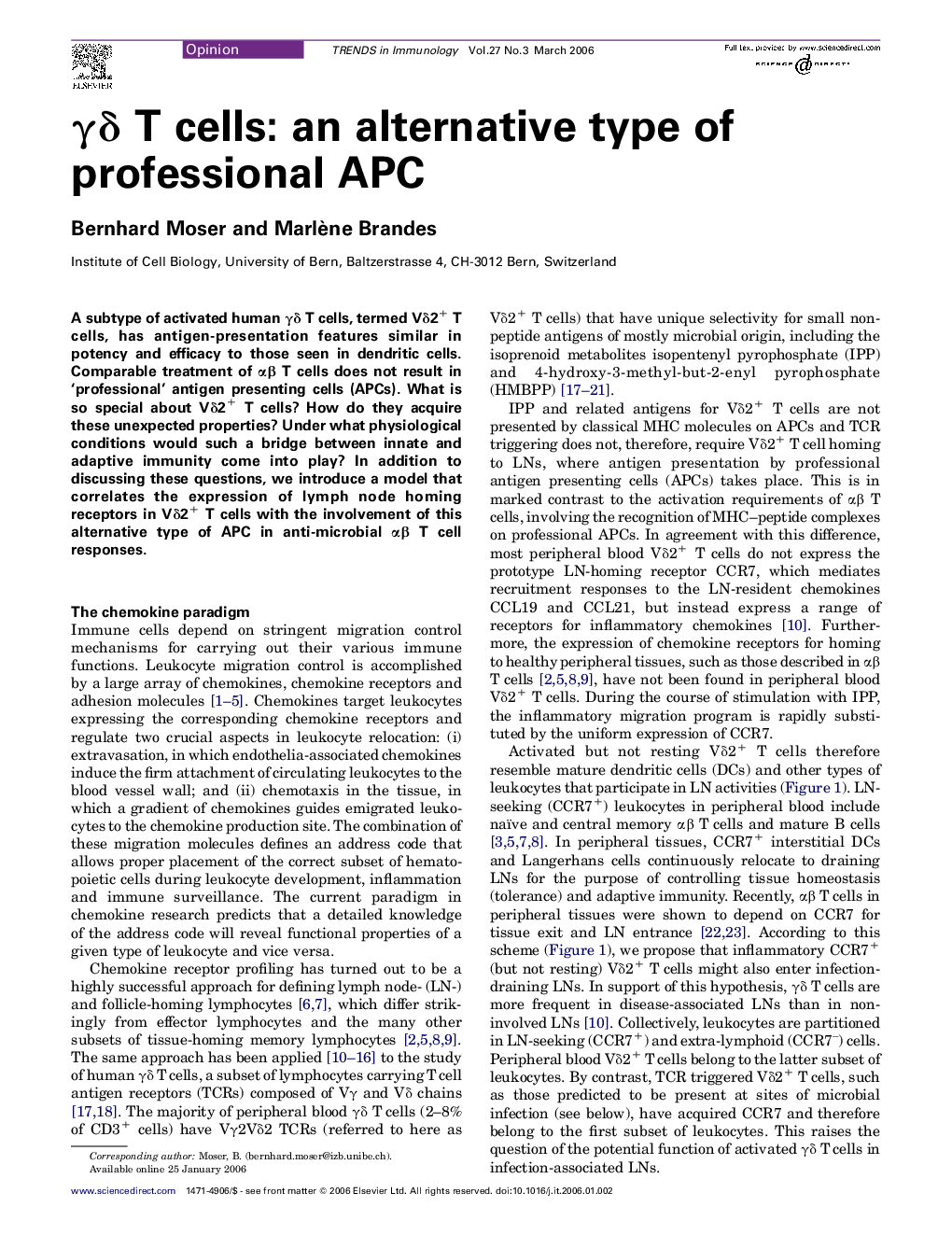| Article ID | Journal | Published Year | Pages | File Type |
|---|---|---|---|---|
| 4360734 | Trends in Immunology | 2006 | 7 Pages |
Abstract
A subtype of activated human γδ T cells, termed Vδ2+ T cells, has antigen-presentation features similar in potency and efficacy to those seen in dendritic cells. Comparable treatment of αβ T cells does not result in ‘professional’ antigen presenting cells (APCs). What is so special about Vδ2+ T cells? How do they acquire these unexpected properties? Under what physiological conditions would such a bridge between innate and adaptive immunity come into play? In addition to discussing these questions, we introduce a model that correlates the expression of lymph node homing receptors in Vδ2+ T cells with the involvement of this alternative type of APC in anti-microbial αβ T cell responses.
Related Topics
Life Sciences
Immunology and Microbiology
Immunology
Authors
Bernhard Moser, Marlène Brandes,
